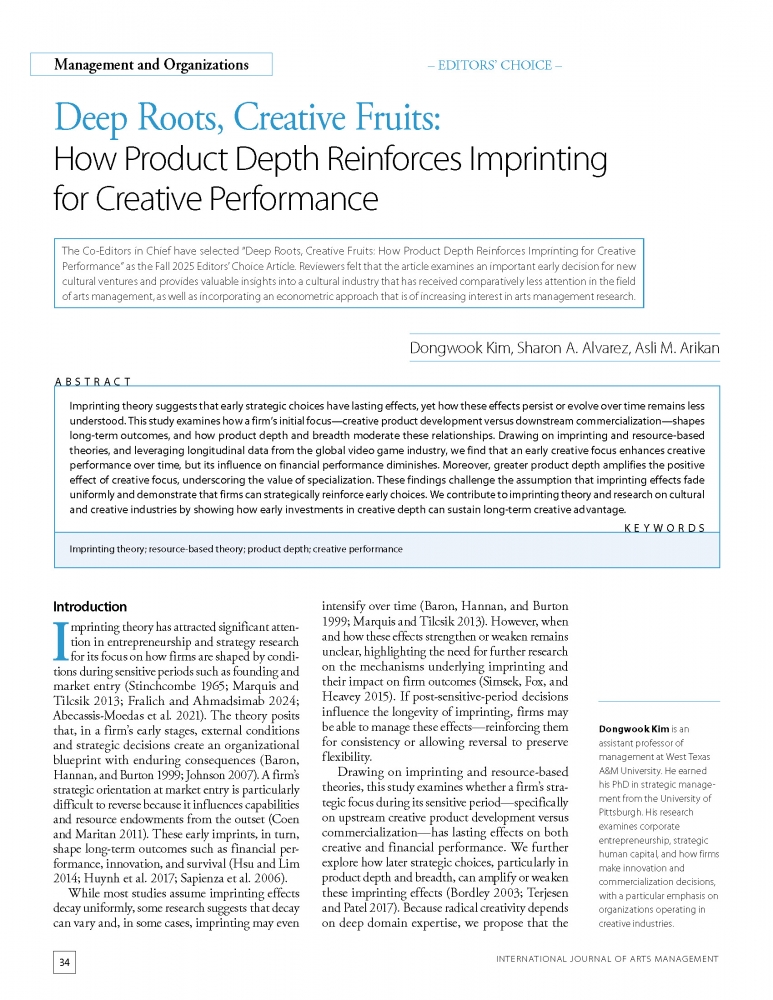Deep Roots, Creative Fruits: How Product Depth Reinforces Imprinting for Creative Performance
Produit: Article
21,00 $ CA
(disponible en anglais seulement)
Dongwook Kim, Sharon A. Alvarez, Asli M. Arikan
Dongwook Kim is an assistant professor of management at West Texas A&M University. He earned his PhD in strategic management from the University of Pittsburgh. His research examines corporate entrepreneurship, strategic human capital, and how firms make innovation and commercialization decisions, with a particular emphasis on organizations operating in creative industries.
Sharon A. Alvarez is the Thomas W. Olofson Chair in Entrepreneurial Studies at the Joseph M. Katz Graduate School of Business, University of Pittsburgh. Her research investigates entrepreneurial decision making under uncertainty and the nature of entrepreneurial opportunities. Her foundational contributions have been widely recognized, including the Academy of Management’s Foundational Paper Award in 2019.
Asli M. Arikan is an Associate Professor of Strategic Management at Kent State University. She received her Ph.D. from Ohio State University with concentrations in Strategic Management and Corporate Finance. Her research focuses on corporate strategy; technological investment decisions; firm survival, IPO, and growth; entrepreneurial opportunities.
ABSTRACT
Imprinting theory suggests that early strategic choices have lasting effects, yet how these effects persist or evolve over time remains less understood. This study examines how a firm’s initial focus—creative product development versus downstream commercialization—shapes long-term outcomes, and how product depth and breadth moderate these relationships. Drawing on imprinting and resource-based theories, and leveraging longitudinal data from the global video game industry, we find that an early creative focus enhances creative performance over time, but its influence on financial performance diminishes. Moreover, greater product depth amplifies the positive effect of creative focus, underscoring the value of specialization. These findings challenge the assumption that imprinting effects fade uniformly and demonstrate that firms can strategically reinforce early choices. We contribute to imprinting theory and research on cultural and creative industries by showing how early investments in creative depth can sustain long-term creative advantage.
KEYWORDS
Imprinting theory; resource-based theory; product depth; creative performance
